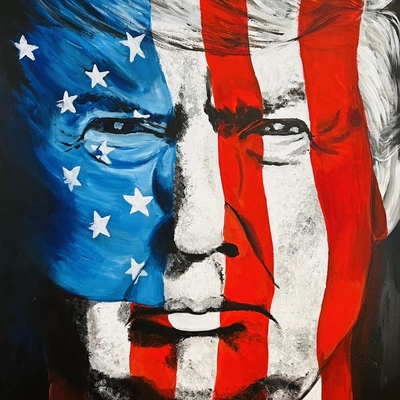Stay informed on the latest Truth Social posts from Donald Trump (@realDonaldTrump) without the doomscrolling. Consider it a public service for your mental health. (Why?)
- Countries have become spoiled with respect to the United States of America.
- Japan has a massive rice shortage.
- Japan refuses to take U.S. rice.
- The U.S. will send Japan a letter in response to this issue.
- The U.S. desires to maintain Japan as a trading partner for many years.
The post addresses a highly specific trade issue concerning U.S. rice exports to Japan. While trade rhetoric can contribute to market sentiment, this particular claim does not involve broad tariff announcements, major policy shifts affecting large economic sectors, or mentions of significant, market-moving companies. The proposed response, 'sending them a letter,' suggests a diplomatic resolution rather than immediate, impactful economic sanctions. Therefore, the direct impact on the S&P 500, which is diversified across numerous industries, is expected to be minimal.
The post focuses on a specific trade concern with Japan, a key U.S. ally. The mentioned action is sending a 'letter,' which implies a diplomatic rather than a confrontational or military response. There are no threats or military references, and the post explicitly states 'great respect for Japan' and 'love having them as a Trading Partner,' indicating a desire to resolve the issue within the existing alliance framework, posing minimal risk of international conflict escalation.
- Commodities: Minimal direct impact on broad commodity markets. Rice is a specialized agricultural commodity, and this specific trade dispute is unlikely to influence global indices or major commodities like Gold (XAU) or Oil (WTI). A very slight, localized impact on U.S. rice futures contracts might be observed if the rhetoric escalates into actual policy, but this is highly granular. Short-Term Watchlist: Specific U.S. rice futures, if available. Medium-Term Focus: Broader agricultural trade policies between the U.S. and Japan.
- Currencies (Forex): Unlikely to have a significant impact on major currency pairs such as USDJPY or the US Dollar Index (DXY). The issue is too specific and localized to influence broader central bank expectations, global risk appetite, or safe-haven flows. Short-Term Watchlist: Any immediate follow-up statements that might broaden the scope of U.S.-Japan trade relations beyond rice. Medium-Term Focus: Overall trade balance dynamics between the U.S. and Japan, though unlikely to be substantially altered by this single issue.
- Global Equities: Very low direct impact on major equity indices like the S&P 500, Nasdaq, or Nikkei 225. While U.S.-Japan trade relations are important, this specific issue about rice imports is too granular to cause movements in large market indices. It does not signal broader economic slowdowns or systemic risks. Short-Term Watchlist: No specific sectors or stocks are directly indicated for significant impact. Medium-Term Focus: Broader trade policy developments that could impact multinational corporations with significant operations in both countries.
- Fixed Income (Bonds): No discernible impact on U.S. Treasury yields (e.g., 10Y or 2Y) or credit spreads. The post does not suggest any fiscal or monetary policy changes, nor does it create a flight to safety scenario for bond markets. Short-Term Watchlist: No relevant indicators. Medium-Term Focus: No relevant indicators.
- Volatility / Derivatives: The VIX (Volatility Index) is highly unlikely to react to a specific agricultural trade dispute with Japan. There is no indication of systemic risk, heightened market uncertainty, or significant policy shifts that would drive volatility higher. Short-Term Watchlist: No relevant indicators. Medium-Term Focus: No relevant indicators.
- Crypto / Digital Assets: No direct correlation or impact on Bitcoin (BTC) or other digital assets. The post pertains to traditional agricultural trade policy, not financial system stability, inflation concerns, or technological innovation that typically influences crypto markets. Short-Term Watchlist: No relevant indicators. Medium-Term Focus: No relevant indicators.
- Cross-Asset Correlations and Systemic Risk: The specific trade issue is too isolated to cause breakdowns in normal cross-asset correlations (e.g., equities and bonds selling off together) or signal broader systemic liquidity stress in the financial system. It is not a macro-level event. Short-Term Watchlist: No relevant indicators. Medium-Term Focus: No relevant indicators.
- Retail Sentiment / Market Psychology: Unlikely to trigger significant retail speculation or shift focus towards 'meme stocks' or 'altcoins.' The content is about high-level international trade policy concerning a specific commodity, which typically does not engage retail speculative interest in broader equity or crypto markets. Short-Term Watchlist: No relevant indicators. Medium-Term Focus: No relevant indicators.

